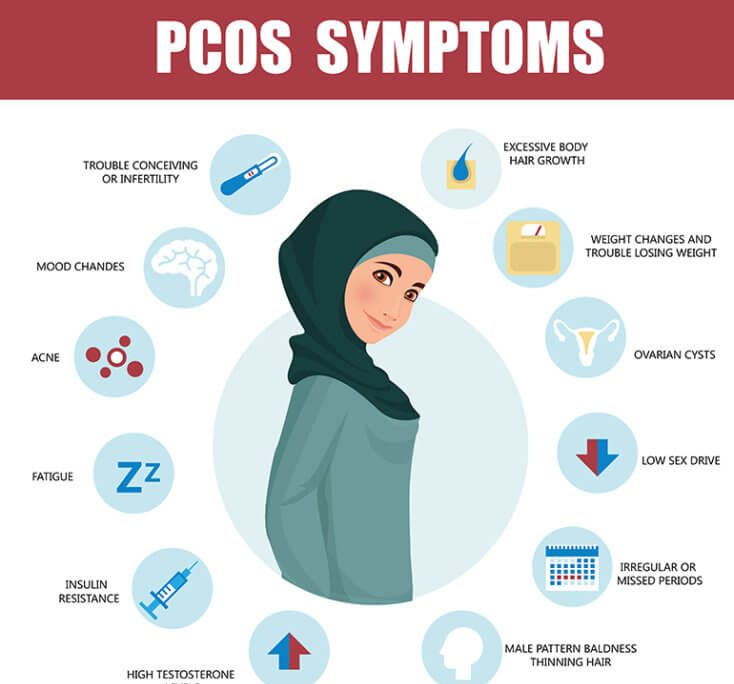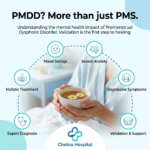Understanding Polycystic Ovary Syndrome (PCOS): A Comprehensive Guide
Polycystic Ovary Syndrome (PCOS) is a complex hormonal disorder that affects millions of women worldwide. In this comprehensive guide, we’ll delve deep into the various aspects of PCOS, from its causes and symptoms to diagnosis, treatment options, and lifestyle management strategies.
1. What is PCOS? PCOS is a hormonal imbalance characterized by enlarged ovaries with small cysts on the outer edges. It often manifests during a woman’s reproductive years and can have significant implications for fertility, menstrual cycles, and overall health.
2. Causes of PCOS: The exact cause of PCOS remains unclear, but it is believed to be influenced by a combination of genetic, environmental, and lifestyle factors. Insulin resistance and high levels of androgens (male hormones) play a key role in the development of PCOS.
3. Symptoms of PCOS: PCOS presents a wide range of symptoms, including irregular menstrual cycles, excessive hair growth (hirsutism), acne, weight gain, and infertility. These symptoms can vary in severity among individuals, making diagnosis challenging.
4. Diagnosis of PCOS: Diagnosing PCOS involves a thorough evaluation of medical history, physical examination, and specific tests, such as hormone level measurements, ultrasound imaging of the ovaries, and ruling out other potential causes of symptoms.
5. Treatment Options: Managing PCOS often requires a multifaceted approach tailored to individual needs. Treatment may include lifestyle modifications such as dietary changes, regular exercise, and weight management to improve insulin sensitivity and hormone balance. Medications like oral contraceptives, anti-androgens, and insulin-sensitizing drugs may also be prescribed to regulate menstrual cycles, reduce symptoms, and improve fertility.
6. Fertility and PCOS: Many women with PCOS experience challenges with fertility due to irregular ovulation or lack of ovulation. However, with proper medical intervention, lifestyle changes, and fertility treatments such as ovulation induction or assisted reproductive technologies (ART), many women with PCOS can achieve successful pregnancies.
7. Emotional and Psychological Impact: Living with PCOS can take a toll on a woman’s emotional well-being, leading to feelings of frustration, anxiety, and depression. It’s essential to acknowledge and address the emotional aspects of PCOS, seeking support from healthcare professionals, support groups, or mental health counselors when needed.
8. PCOS and Long-Term Health Risks: Beyond its immediate symptoms, PCOS is associated with an increased risk of long-term health complications, including type 2 diabetes, cardiovascular disease, and endometrial cancer. Regular monitoring and proactive management of these risks are crucial for maintaining overall health and well-being.
9. Lifestyle Management Strategies: Adopting a healthy lifestyle is paramount in managing PCOS and reducing associated health risks. This includes maintaining a balanced diet rich in whole foods, engaging in regular physical activity, managing stress levels, prioritizing adequate sleep, and avoiding tobacco and excessive alcohol consumption.
10. Advocacy and Awareness: Raising awareness about PCOS is essential for promoting early detection, access to timely treatment, and support for affected individuals. By sharing knowledge, fostering understanding, and advocating for research and resources, we can empower women with PCOS to lead healthier, fulfilling lives.
In conclusion, PCOS is a complex and challenging condition that requires comprehensive management and support. By educating ourselves, advocating for greater awareness, and providing compassionate care, we can make a positive difference in the lives of those affected by PCOS. Together, let’s stand united in the fight against PCOS and strive for a future where every woman can thrive, regardless of her health challenges.
#hospital #pune #pcmc #chinchwad #medical #medicalservices #pcos #pcod #polycysticovarysyndrome #pcostreatment #pcoscauses #pcosdisease #pcosselfcare #polycysticovarysyndrometreatments #pcosovaries #pcodpcos #bilateralpcos #pcodproblems #gynecologist #women #womenshealth #womenswellness #pcossymptoms #signsofpcos #pcostest #bilateralpcos













